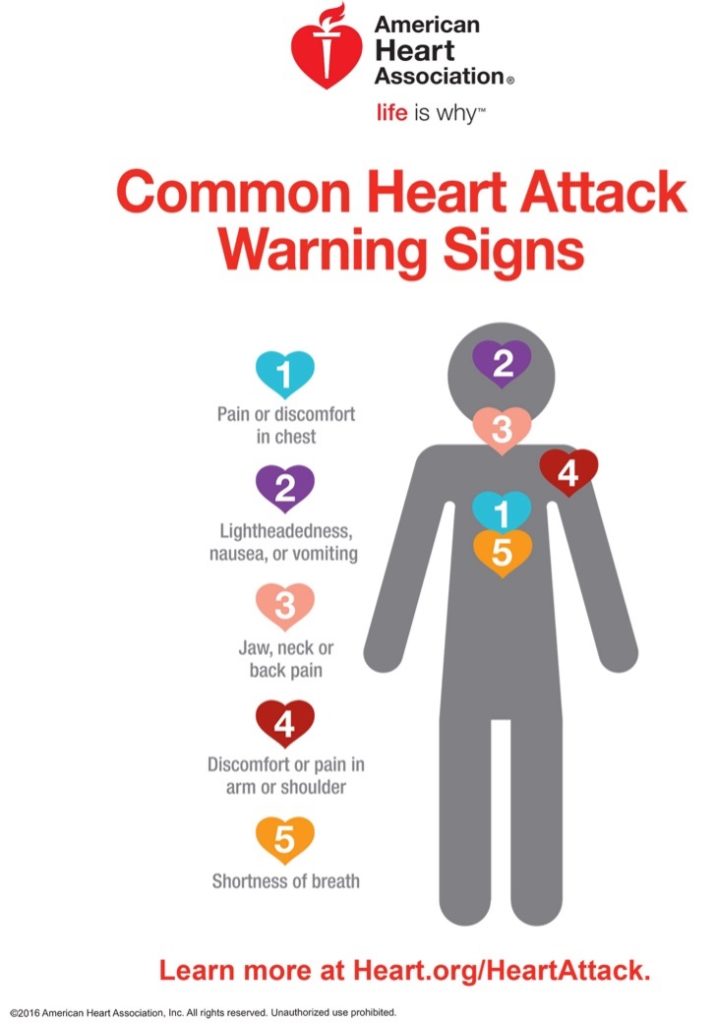February is American Heart Health Month, the time to focus on your cardiovascular health. Heart attacks are often “silent killers” because the signs can either go unnoticed or be confused as a symptom for something else.
A heart attack strikes someone about every 43 seconds! It occurs when the blood flow that brings oxygen to the heart is severely reduced or cut off completely, usually due to a narrowing or closure in the arteries that supply the heat with blood. That narrowing is often caused by a buildup of fat, cholesterol, or plaque.

Here are the early warning signs of a heart attack. Some heart attacks come on fierce and quickly while others have more subtle warning signs.
According to the American Heart Association, you should call 911 or seek medical attention immediately if you are experiencing any of the following:
- Chest pain or discomfort. Most heart attacks involve some sort of discomfort in the center of the chest that lasts more than a few minutes – or it could be strong, fade away and come back. It may feel like pressure or a squeezing sensation on our chest.
- Discomfort in other areas of the upper body. Symptoms can include pain or discomfort in one or both arms, the back, neck, jaw or stomach.
- Shortness of breath. This can occur with or without chest discomfort.
- Other signs. Other possible signs include breaking out in a cold sweat, nausea or lightheadedness.
Men and Women often experience different symptoms
As noted above, not all heart attacks present themselves in the same way – and this includes how men and women experience early symptoms. Heart Disease is the #1 killer of women in the U.S. so understanding your own body is extremely important!
According to Nieca Goldberg, M.D., medical director for the Joan H. Tisch Center for Women's Health at NYU’s Langone Medical Center and an American Heart Association volunteer, men and women can experience chest pressure like an “elephant sitting on their chest” BUT, women can experience a heart attack without that extreme pressure. Women may experience shortness of breath, pressure or pain in the lower chest or upper abdomen, dizziness, lightheadedness or fainting, upper back pressure or extreme fatigue.
Those later symptoms are often identified as something else, including the flu putting women at a higher risk because they don’t seek immediate medical attention.
Most heart attacks are preventable!
Heart Disease is the leading cause of heart attacks but the good news is that through lifestyle changes, most people can ward off heart disease and prevent heart attacks.
Dr. Goldberg stressed the following
- Schedule an appointment with your healthcare provider to learn your personal risk for heart disease.
- Quit smoking. Did you know that just one year after you quit, you’ll cut your risk of coronary heart disease by 50 percent?
- Start an exercise program. Just walking 30 minutes a day can lower your risk for heart attack and stroke.
- Modify your family’s diet if needed. Check out these healthy cooking tips. You’ll learn smart substitutions, healthy snacking ideas and better prep methods.
Here’s to a Heart Healthy February and please remember to wear Red on February 4 or “Go Red Day” as a way of bringing attention to the need raise women’s heart health awareness.

